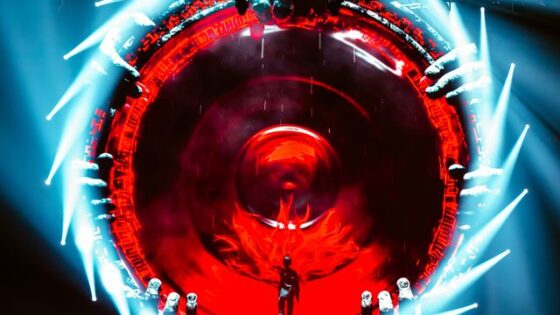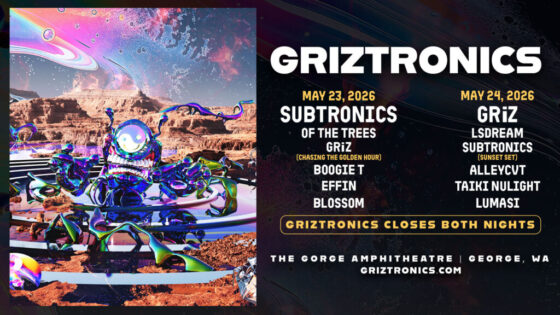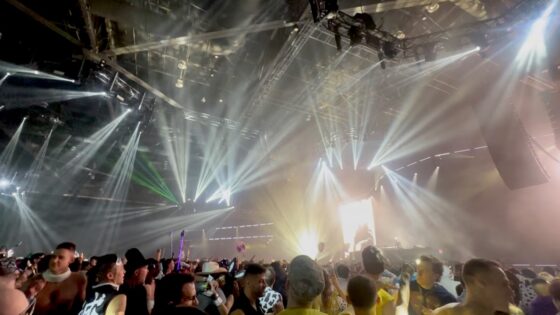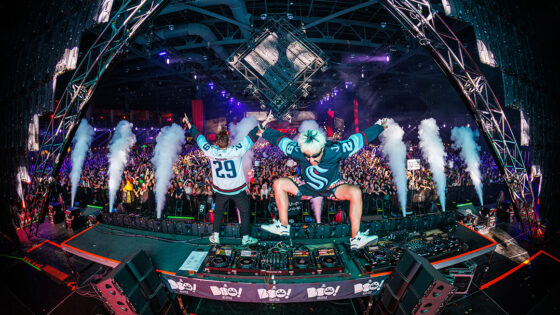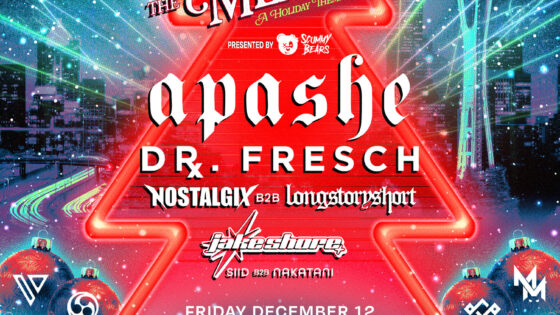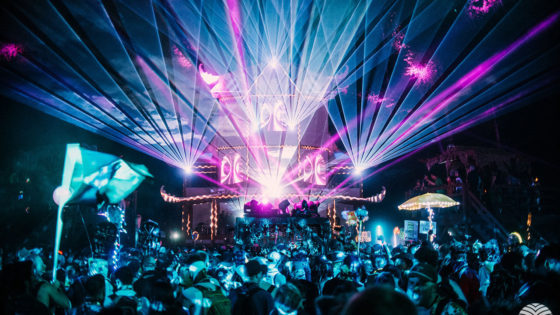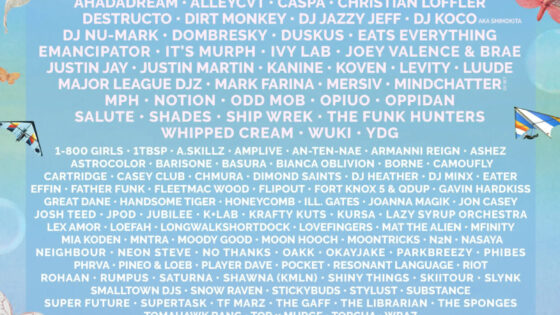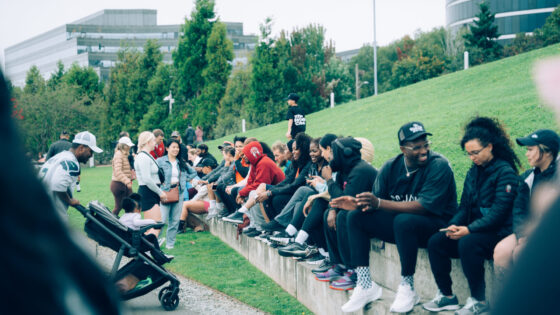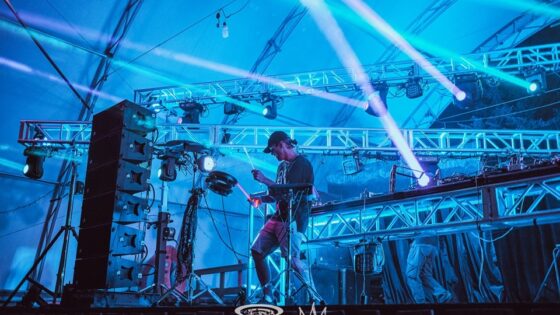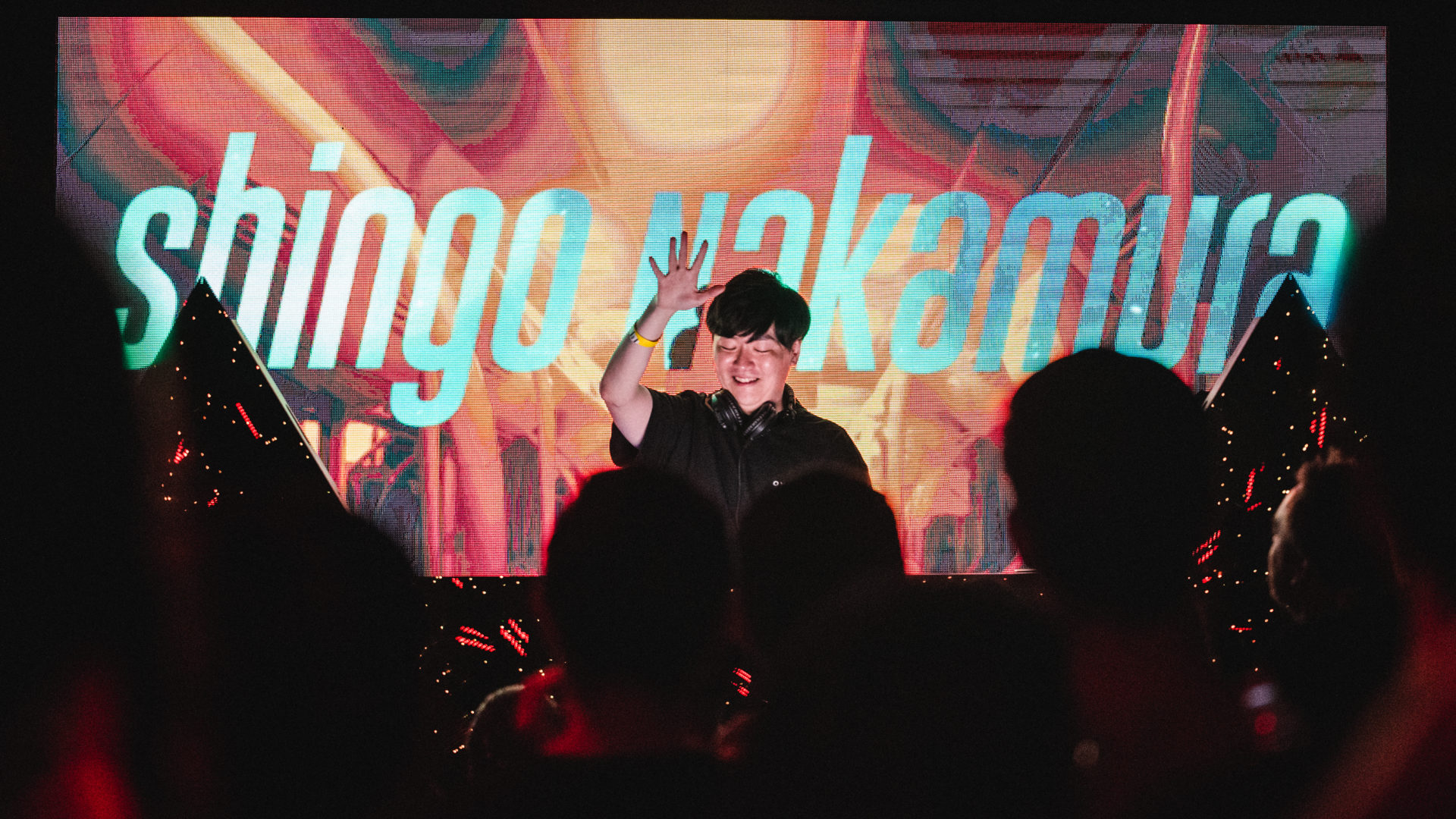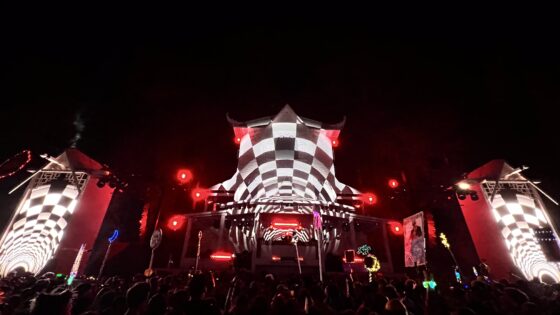Monstercat Silk celebrated its 700th Radio Episode at Ora Nightclub in Seattle on May 12 and 13! To celebrate the show’s 700th episode, Monstercat brought the Silk Showcase to Seattle for two back-to-back nights with melodic house maestro Shingo Nakamura and the multi-talented BT as headliners. The artists attracted die-hard fans who lined up early and muttered to each other about how excited they are to experience a rare and intimate live show by two of Monstercat Silk’s most prominent acts.
The Silk Showcase is a weekly radio show and podcast presented by Monstercat, electronic music’s highly influential B.C.-based independent record label. The show features hour-long mixes of emotive and intelligent house, progressive, and trance music performed by a talented rotating cast of artists. Often co-hosted by Monstercat Silk’s lead A&R and label director Jacob Henry, the show is admired globally and reaches over 2.8 million listeners monthly.
We were lucky enough to sit down with Shingo Nakamura, the top artist for Monstercat Silk, and label director Jacob Henry. Henry is also a producer and performed the night prior. Later in the night, we talked with Grammy-nominated artist BT who closed the show on the second night. We learned about the show’s significance to them, the work behind the scenes of the podcast and radio show, what they are currently working on, and much more.
View this post on Instagram
Shingo Nakamura brings his unique progressive house style back to the US
Shingo is a Tokyo-based producer and DJ known for a progressive house style that blends deep and lyrical sounds with classical piano. His first two albums, Sapporo and Days reached the top of Beatport’s Progressive House and Trance Charts, and his highly-anticipated 2021 album Glow received widespread acclaim with multiple singles reaching #1 on SiriusXM Chill. Shingo’s immense success cemented him as one of the world’s leading melodic and progressive house space talents.
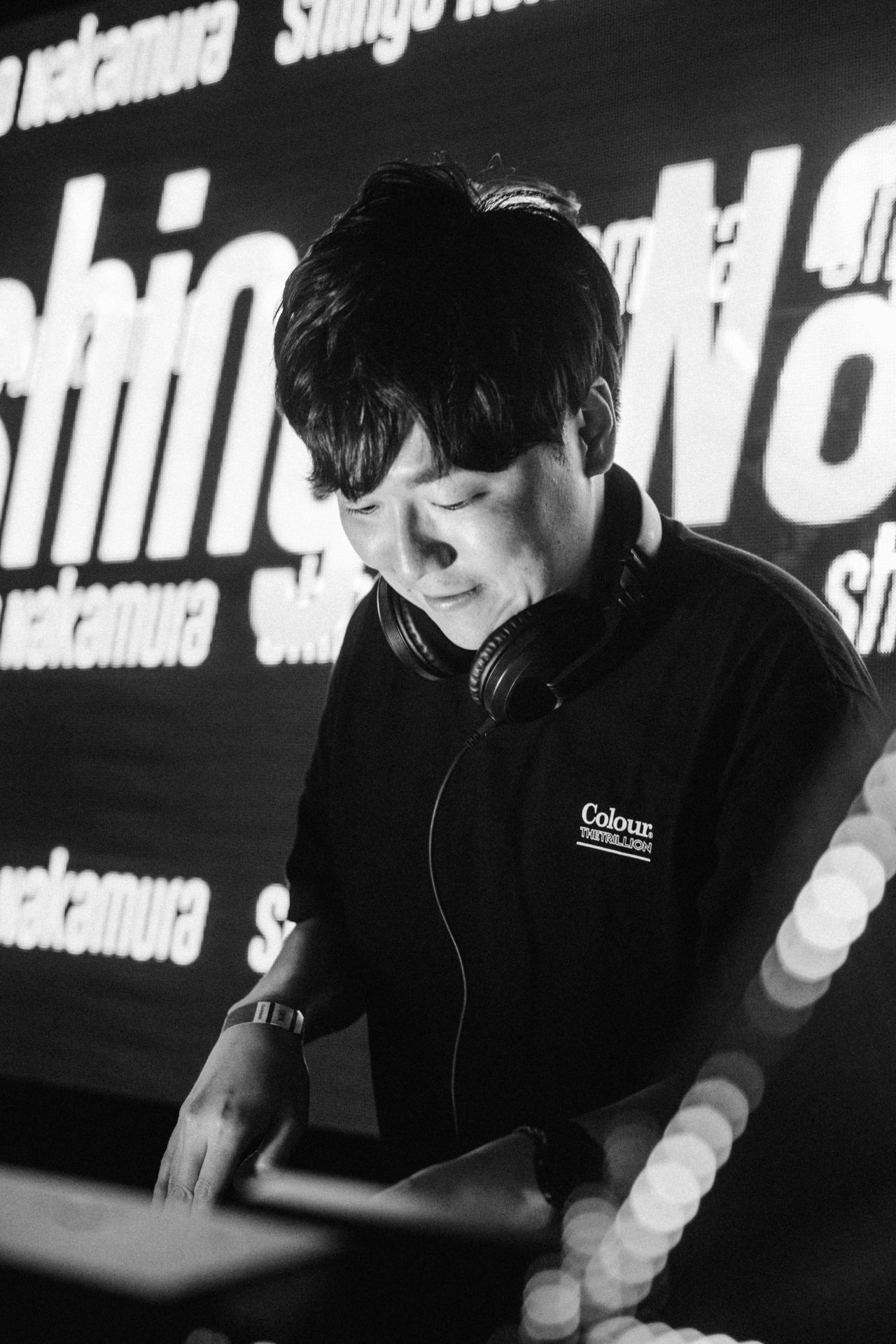
Credit: Sean Alexander
DMNW: Is this the main Monstercat Silk Showcase celebration? Or will you guys be performing in other cities as well?
Jacob Henry: This is the official Monstercat Silk showcase weekender. We’re calling it Weekender because it’s 2 back to back nights, and we have a slightly different lineup each night. BT [headlines the second night], and Shingo headlined last [the first]. He’s also doing a special deep set in direct support of BT.
Henry: All these amazing storylines connect us all. BT remixed one of Shingo’s songs two years that we released on Silk – Midnight. It was one of the big tracks off of Shingo’s last album Glow. That was sort of the first official connection between the two of them. Now they’re working on music together and all of these amazing things have happened.
How did you end up picking Shingo and BT for this showcase?
Henry: So, from a label perspective, I run the Silk label. Shingo has been our leading artist on Silk for many, many years. He signed with the Silk label in 2009. He released his first album Sapporo, which is a city in Japan where he lived for 5 years. That was about 12 or 13 years ago. He has since released many original tracks and remixes for Silk. In addition, he released a second album with us in 2021, Glow.
That was a very special moment for the label because at that exact time, Silk Music was acquired by Monstercat and we became Monstercat Silk. To launch this new brand, our very first release was the single Glow. This became the title cut off the album.
From a press standpoint, in terms of a moment to celebrate this, we let out that record and it was sort of a symbolic moment to show that Silk was still going to be Silk. Sure, we are Monstercat Silk now, but we are still emotional, melodic, atmospheric, and beautiful electronic music. We have a little bit of an emphasis on progressive, and some influence around trance and house; sort of a medley of those three genres.
How has Monstercat Silk changed over the last 15 years, and has your vision for it changed along the way?
Shingo Nakamura: I think in a lot of ways it’s the same, but in some ways, it is more chill. To me, Silk hasn’t changed but this industry changed. People need more melodic chill songs. So again, the strategy has not changed.
Henry: Thank you, Shingo. The truth is, we have always been releasing chill and downtempo music. We’ve had a wide spectrum of genres since then though: from downtempo ambient chill-out music, all the way up to progressive house, which is like 4 by 4 clubbing music. What Shingo said is absolutely true. On average, we are releasing more relaxing melodic chill house, and a little bit less progressive trance and progressive house. But that has always been part of our portfolio of music. It’s just that we are a little bit older now, the tempos have slowed down, and the industry has changed in a way too where deeper melodic music has become more popular and more accessible.
It wasn’t a strategy to try to chase trends, more that the natural tastes have evolved and it just so happens that there is a really big market now around this style of music that we call melodic house or chill progressive house. For example, there is a radio station that you might be familiar with called SiriusXM Chill. Channel 53 on SiriusXM. It’s been one of the biggest platforms to expose Silk and especially Shingo’s music.
He has had about five or six records in a row that have been added to the rotation which is a really big accomplishment, and that just shows you how there is a great synergy between his natural style of production and this interest in fans that may not be traditional electronic music fans.
They want to hear a pulse that has a beat and groove, but isn’t too slow and isn’t going to put them to sleep. It’s right in the middle. It gives them energy for their day but doesn’t distract them from the day-to-day soundtrack of their life type thing. They’re working, they’re driving their car, and it keeps that steady rhythm.
The meditation/relaxation app Calm uses a lot of music from the Monstercat Silk label. I feel like that’s the perfect way to describe the music for the app: it gives listeners a slow and ambient beginning to their day and encourages productivity but doesn’t put them to sleep.
Henry: Yeah, so Calm was one of the big partnerships that Monstercat was able to establish for Silk after the acquisition. It was one of those “this is why we did this deal” moments. Monstercat has always been a powerhouse with its corporate partnerships, especially with gaming partners. Calm was a new opportunity in the meditation space for Monstercat.
Especially as an electronic music label, exploring a partnership with a meditation app is so unique. I’m sure it was a great partnership that was formed.
Henry: Yeah, Monstercat is traditionally known for bass music. So this was us flexing our muscles and saying, “Listen, we can do more than bass music and we have tentacles elsewhere.”
An interesting thing about Calm is that it’s not just sleep or yoga music. They have different styles of music in that app for studying or focusing, so we created similar playlists. One of them was specifically around studying. The other one was more for focus. We curated these experiences on the app around the different dimensions of Silk.
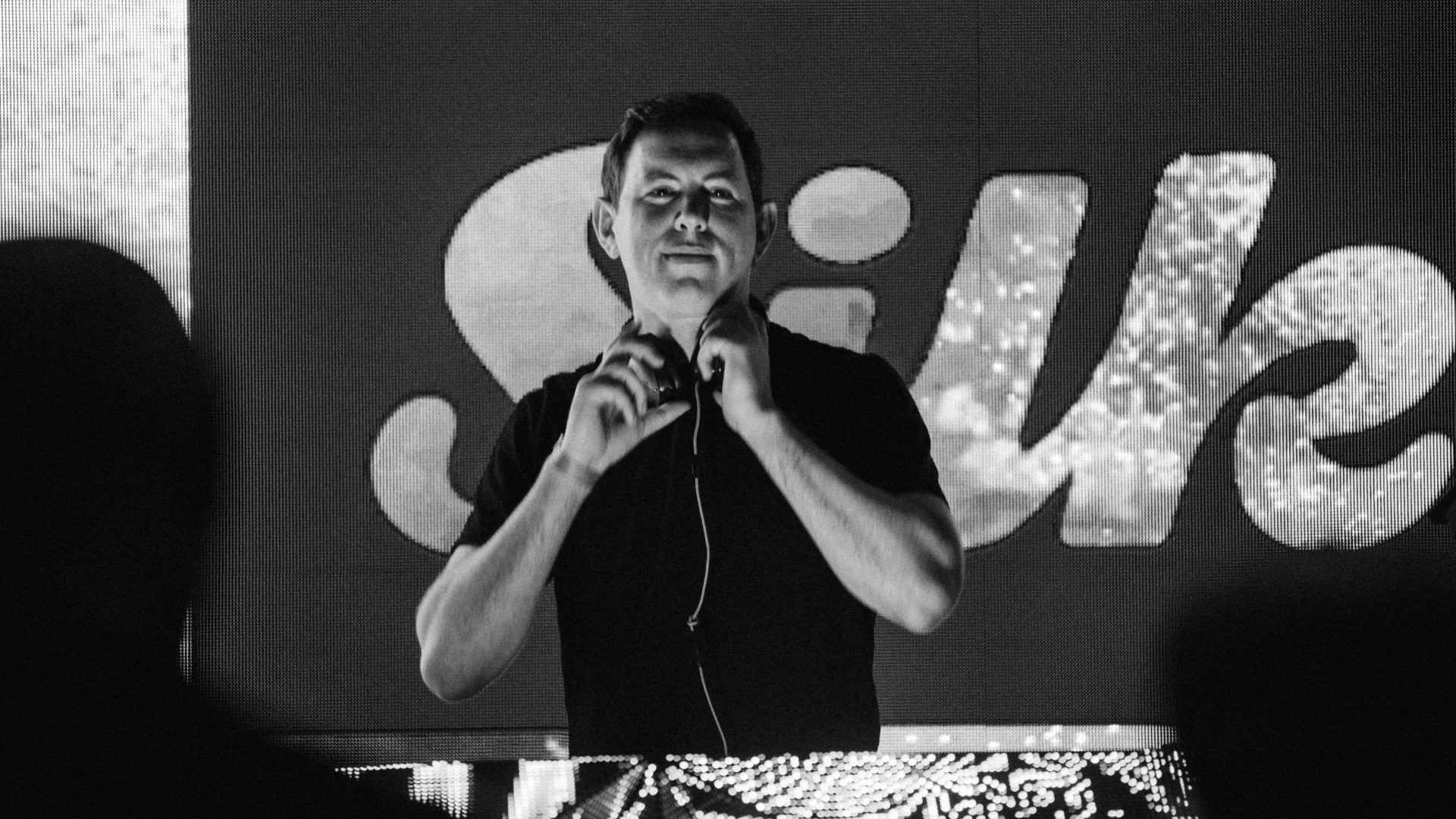
Credit: Sean Alexander
How does it feel to be celebrating the 700th episode?
Henry: It’s absolutely extraordinary. 700 episodes mean that we’ve been doing the show for 15 consecutive years. Every week for 15 consecutive years. If you do the math, it’s basically 50 episodes a year for 15 years. We have done other milestone shows around the world, especially in North America. 10 years ago, we did one in San Francisco for the celebration of episode 250.
Wow, that’s crazy! 10 years ago?
Henry: Yeah it was 2013 at Audio Nightclub, still one of the premier venues in San Francisco. We did the 400th and 500th episode celebration here in Seattle, the 500th being here at Ora. This is the second time we’ve done a milestone show here.
So how come Seattle?
Henry: It’s just one of the great markets for our music. The last time we were here, we did a mini tour where it was just one of 6 or 7 stops. We did a show at Soundbar in Chicago, we flew back to Audio in San Francisco, New York, and Denver. We have to come here because we have a great fanbase here. There are a lot of tuned-in fans that know the history of these genres, know the history of progressive and trance here in Seattle. It’s a very sophisticated and educated audience for this music, who have a real understanding of the evolution of the last 30 years.
Even when we were outside standing in line, people were lining up talking about how excited they were to see Shingo. People know exactly what’s going on. That’s not super common for one-off events like this. People are out there lined up specifically for Monstercat Silk artists.
What do you notice about your fans and Silk fans that are different from other electronic music fans?
Nakamura: I think with the type of music I include in my tracks, Silk fans are a bit different. Every time I play my classic tracks, my fans are singing my songs. I think that is different from other electronic music. On an artistic front, I think [Silk] is very different.
Henry: Yeah, it’s almost like with most subcultures. Maybe it’s not mainstream, maybe it doesn’t have as much commercial recognition, but the advantage is the ones that are following tend to be especially passionate. The level of conviction and passion is higher.
A smaller fanbase is always a more dedicated fanbase.
Henry: Definitely. We’re growing our fanbase through platforms like Calm and SiriusXM Chill. But, there’s something to be said about these veteran fans. To them, it’s more than just, “Oh, I want to go out dancing tonight.”
To them, it’s a lifestyle. They identify with the music. It’s very sacred and very spiritual. It’s gets them through their hard days. Shingo has an incredible reputation and incredible accomplishments. If you look at his Spotify for example, his fans will listen to his songs over and over again and keep coming back to those same songs; they are very committed.
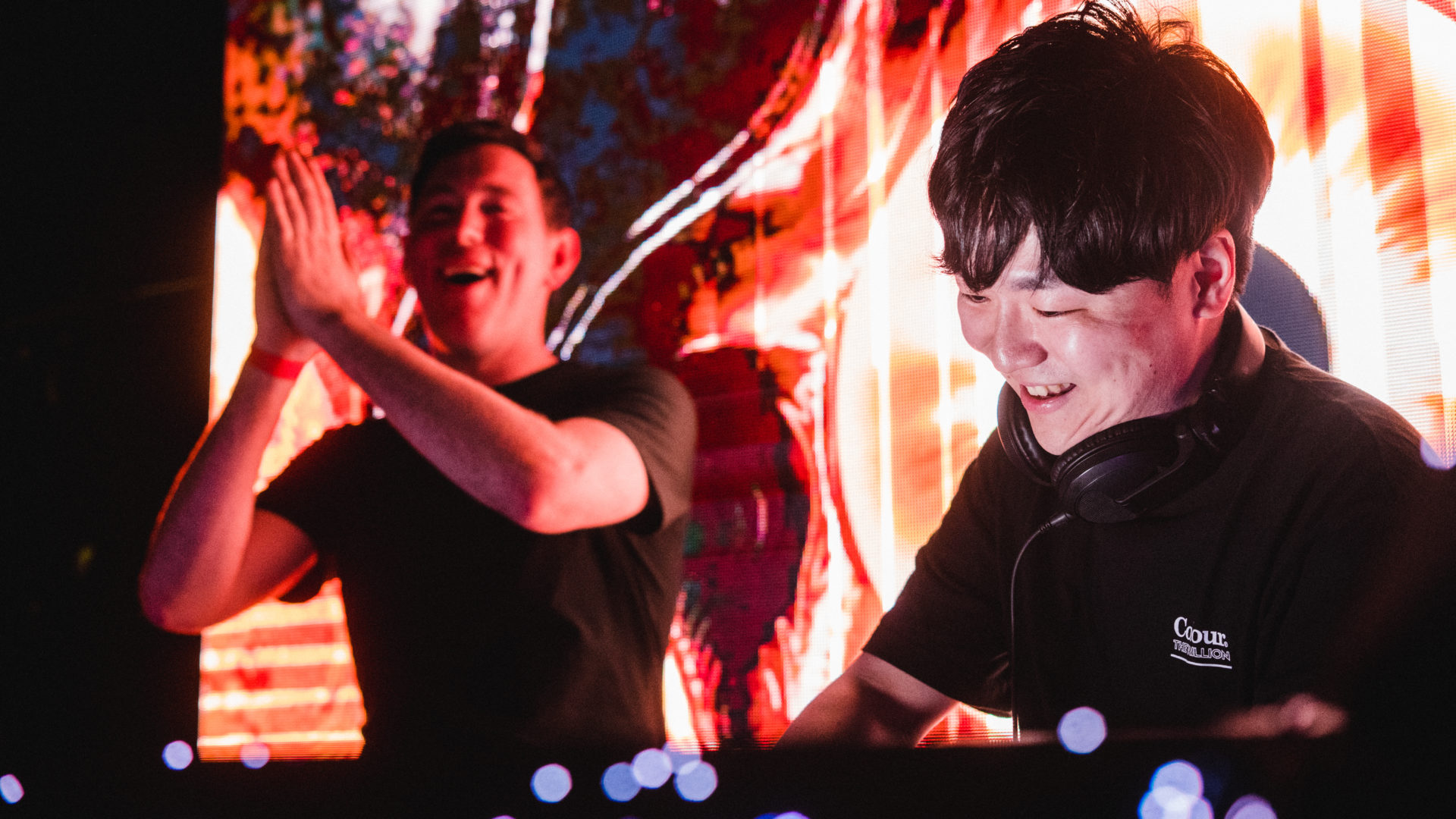
Credit: Sean Alexander
So Shingo, how does it feel to be back in the US after 10 years?
Nakamura: It’s so exciting. I use a visa, I had some gigs this year and maybe I will do more gigs this next year.
Is that why you haven’t performed in the US for the last 10 years? Do you need a visa to come to perform?
Nakamura: Yes, the program is so hard. I worked as an office worker for the rest of the year, but finally, I quit and pursued music full-time. In Japan, we never have long vacations, and it’s really hard to visit the US. So that’s why I couldn’t do more US tours.
It is so amazing that you can finally quit your office job and pursue music full-time!
Nakamura: Yes, it is a dream come true.
Henry: We are planning a tour, and in the meantime, Shingo is playing Tomorrowland in Belgium, one of the biggest festivals in the world, for the first time in his career.
That is so incredible and so exciting! What a huge accomplishment- is that happening this year?
Nakamura: Yes, this year summer!
Henry: Monstercat has had stages at Tomorrowland for years, this is the first time that Monstercat Silk specifically will be sending our top artist to go play.
What would you say is at the core of why you make music? What does all of it mean to you?
Nakamura: At first making music was just fun for me, but when I was an office worker, I moved from Tokyo to Sapporo. I had no friends in Sapporo so music was a way to make friends. The reason doesn’t change now. As I keep making music, I have opportunities to meet my fans and do gigs like Tomorrowland. Music is my way of connecting with people.
Henry: Shingo is very humble. One of the reasons he didn’t play in the US for 9 years, is that he did not have the opportunity to make a living from music. His last album was a huge success with Monstercat. He is doing so well in his career that now has the opportunity to support himself with music, [which is very difficult].
Before he wanted to tour, he wanted to make sure that he could make a living as a producer. That’s the reason that we waited until this moment. And, because of all of his success, it was finally possible to get a US visa because the visa is based on merit. We were able to prove all the great accomplishments from radio support, Spotify, and Apple Music, and bring him to stages across the US.
That is such a huge accomplishment! It takes a lot to have that mindset and prove to yourself and your fans that you can make it just with your music. I know especially with music, artists make most of their revenue from touring. It takes so much to be able to make a living from just streaming, so this is truly an amazing accomplishment! Were you working at your office job when you started making music? Is that how you started?
Nakamura: I started making music when I was a high school student, but making music for more than 20 years.
Henry: Over 20 years as a producer. What’s so incredible is that he was able to release music in the 2010s while he was working 50-60 hours a week. He had 2 careers simultaneously. An international DJ and producer, and a full-time worker in Japan.
How do you plan to make your Tomorrowland set different from what you have done before?
Nakamura: I only create my own tunes, and many friends will come to the party to see my set. I want my crowd to enjoy my set. It’s going to be a special production.
Watch the full 2 hour DJ set for the 700th episode of the Silk Showcase here:
BT shares his inspiration for music
Later in the evening, we had the chance to chat with BT. BT is an award-winning, Grammy-nominated artist who has worked alongside legendary artists such as Britney Spears, David Bowie, and NSYNC among many other iconic names as well. He also composed the soundtrack for Fast and Furious 2 and was commissioned to create a four-hour composition for Shanghai Disneyland.
Additionally, BT also holds several patents for being the pioneer of what he has coined as ‘stutter editing’. He is a multi-instrumentalist and is also accredited for pioneering ‘intelligent dance music’ and being a major force pushing forward the scene of electronic dance music, as well as music as a whole, and music in correlation to technology.
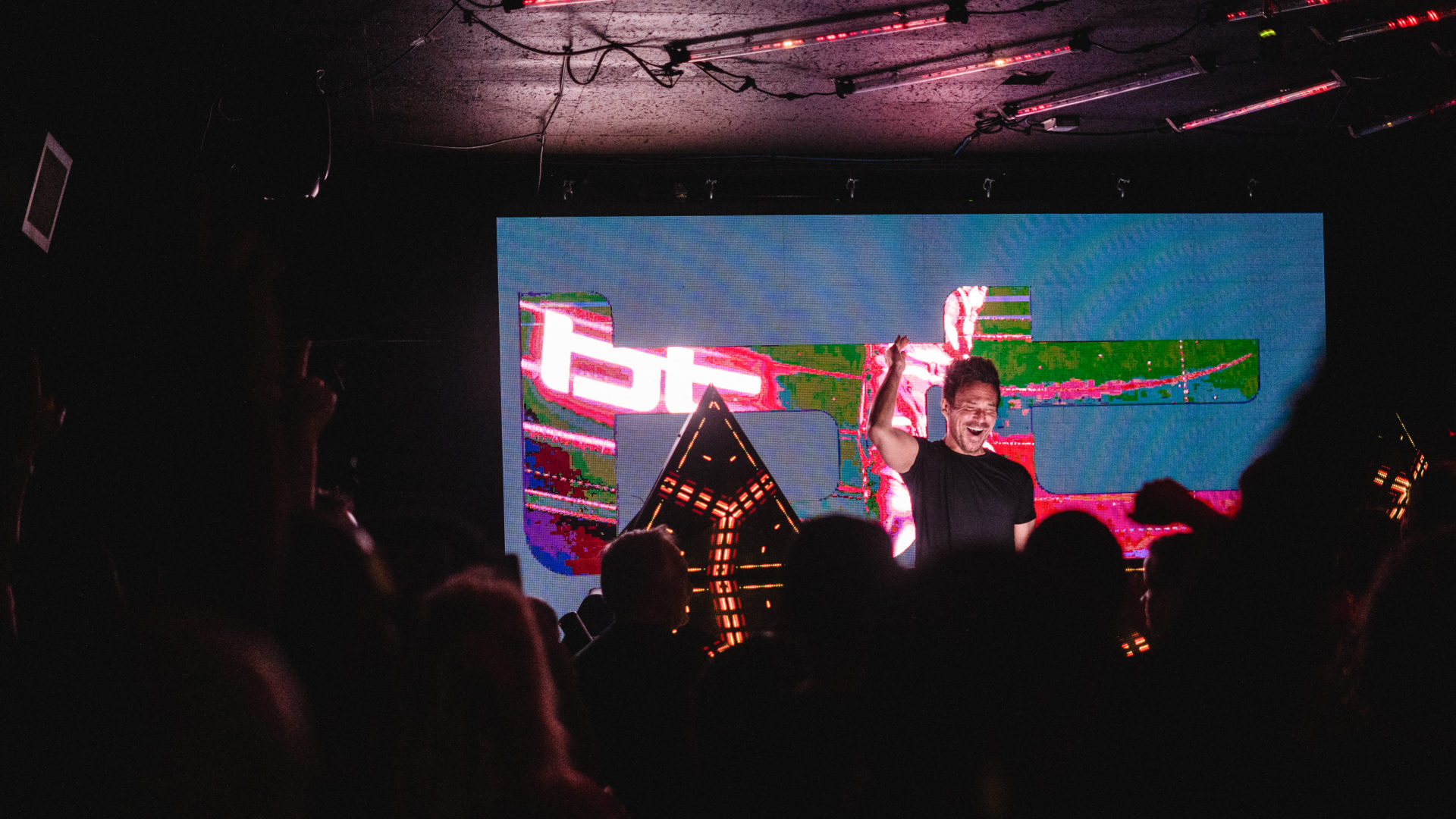
Credit: Sean Alexander
What is at the core of why you create music in the first place?
BT: I’ve just always been fascinated by sound. Not just music, but sound. It has always been so captivating to me. My whole life, I’ve been obsessed with it. Started with a kid and it has never left me. Some people are born to do certain things, and I feel that way about music.
You’re very versatile and have done a lot of different things with your music. It’s so cool, for example, that you composed the soundtrack of Fast and Furious. How does your creative process differ between composing for film, and producing electronic music?
BT: I have friends in my life who do one thing and they do it well. I sometimes get jealous of that, and sometimes not. There’s consistency in making the same type of things, but there is also boredom in that. I am constantly engaged in projects that feel different and new and challenge me in different ways.
For example, when making a score for a movie, you are following the director’s creative vision and trying to evoke a certain emotion in the audience. With electronic music at a club, you’re trying to make people feel connected while with a soundtrack, you’re sending the viewer on a solo experience.
I also get to use a lot of other instruments with different types of projects that I wouldn’t necessarily get to use with electronic music. I started learning piano when I was a kid in the back of a little Presbyterian church on the weekends. We would learn to write for the quartet and some other types of writing. It’s cool because I get to use all of that stuff with film scoring. I don’t use it really in electronic music, so it’s fully like switching a different part of your brain.
Catch weekly Monstercat Silk Showcase episodes!
We were thrilled to sit down and chat with Jacob Henry, the lead A&R of Monstercat Silk, Shingo Nakamura, Monstercat Silk’s top artist, as well as BT, who closed out the second night of the Monstercat Silk 700th episode showcase weekender. We are so thrilled to see the successes of Shingo and the Monster Silk label as a whole.
Be sure to catch weekly Monstercat Silk Showcase episodes and discover new progressive house and trance music. Huge thanks to everyone from Monstercat for allowing us to learn more about these incredible artists and their journeys.
Important things happen in Pacific Northwest nightlife, and DMNW will send you alerts!

